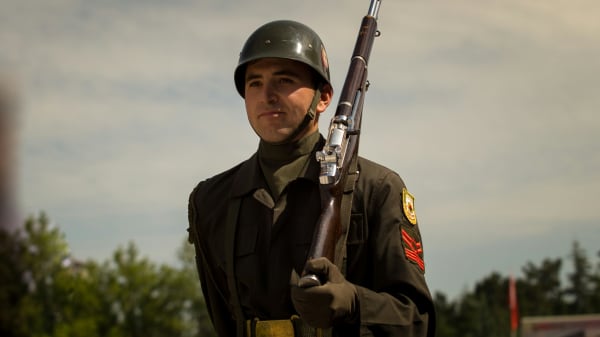Enlisting in the military starts a journey that not only transforms individuals physically, but also emotionally. This transition is marked by a roller coaster of emotions; from the thrill of taking an oath, the hardships of basic training, to the constant anticipation of deploying. The emotional aspects of military enlistment are often overlooked, but understanding them can help better prepare those considering making this life-altering commitment.
The Decision of Enlistment: Excitement and Apprehension
It is important to recognize the mixture of emotions that arise when making the commitment to enlist. There might be excitement about starting a new chapter, but also apprehension about the unknown. For many, this decision may involve leaving home for the first time, creating a simultaneous sense of adventure and fear.
- Excitement - The prospect of experiencing new cultures, adventure and forging unique friendships often stokes a sense of thrill.
- Apprehension - The discomfort of not knowing what life will be like, the possibility of deployment to war zones, and concern for personal safety can be cause for anxiety.
Basic Training: Intense Physical and Emotional Conditioning
Basic training is perhaps the most physically demanding phase, but equally, it involves intense emotional conditioning. Recruits have to adapt quickly to strict discipline, rigorous physical demands, and the culture shock of military life.
- Resilience - The constant physical and mental challenges can lead to a sense of accomplishment, boosting self-confidence and resilience.
- Loneliness - Being away from family and friends and missing significant moments back home can onset feelings of loneliness and isolation.
- Camaraderie - Despite the intensity of basic training, a shared experience of hardship often creates strong bonds between recruits. This camaraderie becomes a source of comfort and support.
The Prospect of Deployment: Uncertainty and Anticipation
Being deployed presents another set of emotional challenges. The uncertainty of deployment and separation from loved ones can be a heavy emotional burden to bear.
- Uncertainty - Not knowing where and when they might be deployed leads to a constant state of anticipation. This can sometimes create tension and stress.
- Responsibility - There is often a heightened sense of duty and responsibility to protect not only oneself, but also comrades and civilians who might be affected by the conflict.
- Pride - Despite the dangers inherent in deployment, the ability to serve one's country often instills a deep sense of pride in many service members.
Returning Home: Transition and Reintegration
Returning to civilian life presents its own set of emotional adjustments. Transitioning from a highly structured military life to a relative lack of predictability in civilian life can be jarring.
- Relief - Coming back home is often accompanied by a sigh of relief, both for the service member and their family.
- Readjustment Stress - The stark differences between military and civilian life can lead to stress during reintegration.
- Identity Crisis - Some service members may struggle with their sense of identity after leaving the service, leading to feelings of confusion and discontent.
Help and Support
Recognizing and addressing the emotional aspects of military enlistment is a critical part of supporting our service men and women. There are numerous resources available for service members, veterans, and their families seeking help:
Final Thoughts
Whether you are contemplating enlisting in the military or you are a family member or friend of an enlisted individual, understanding the emotional aspects of military enlistment can help better prepare you for the journey ahead. It is important to recognize these emotions and seek professional help when necessary to navigate this challenging path.
Remember, there is no shame in seeking help. The roller coaster of emotions experienced throughout the journey of military enlistment is normal. Speaking up about emotional challenges not only helps the individual service member, but also benefits the larger military community by fostering a culture of understanding, empathy, and support.




